St. Joseph North Pier, Michigan, USA. Built on Lake Michigan, which is one of the Great Lakes of North America, the pier has even two lighthouses. The pier was named after the river, which enters the lake. The first lighthouse was built in the early 19th century.
During winter the waves crash to the pier and frost it. As a result, the amazing ice formations cover the lighthouses and look like from a fairy tail.
Why to go there?
See one of the five Great Lakes of North America and these marvelous ice formations.
When to go there?
If you want to see the ice-covered pier, go during winter.
How to get there?
You can walk to the pier from Tiscornia Park.
Useful information:
Watch out for the waves, that can be very high.
The site is picturesque in the warm season, as well.
Visit: lighthousefriends.com
Lead photo Tom Gill
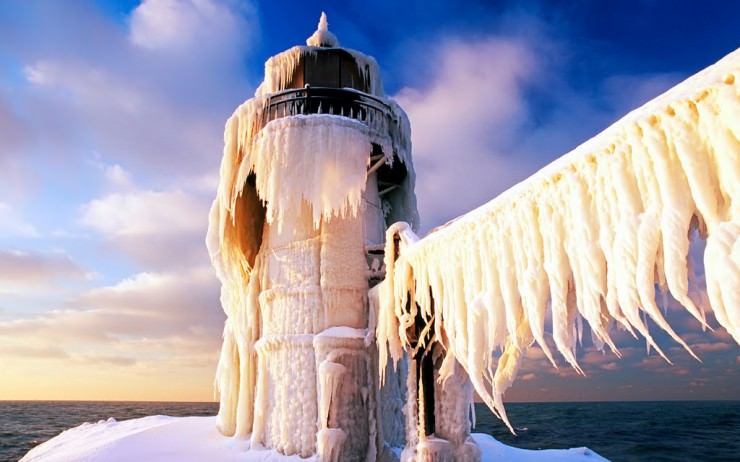
Photo by Unknown
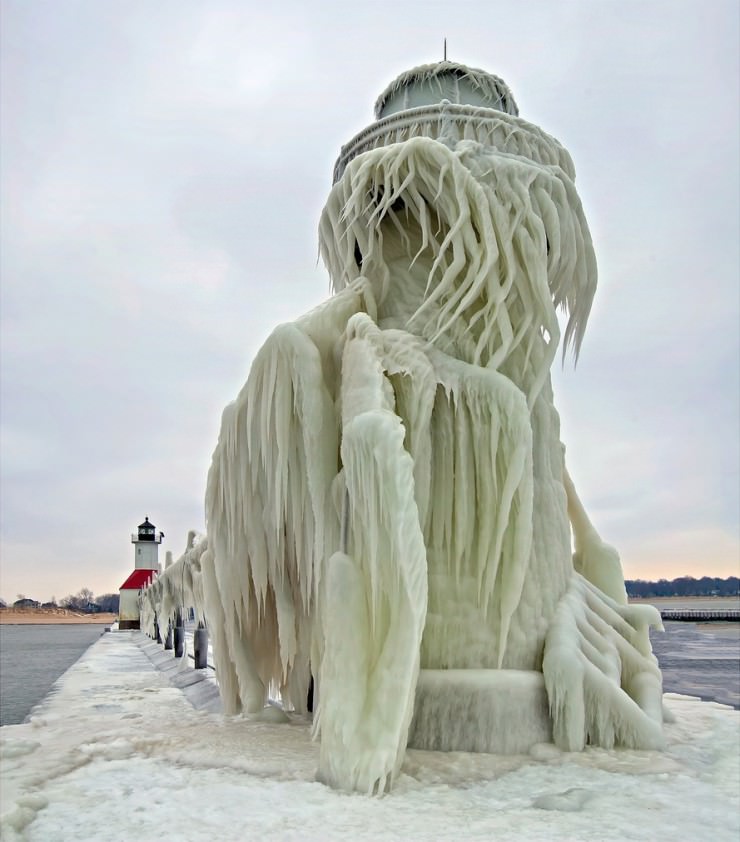
Photo by Unknown
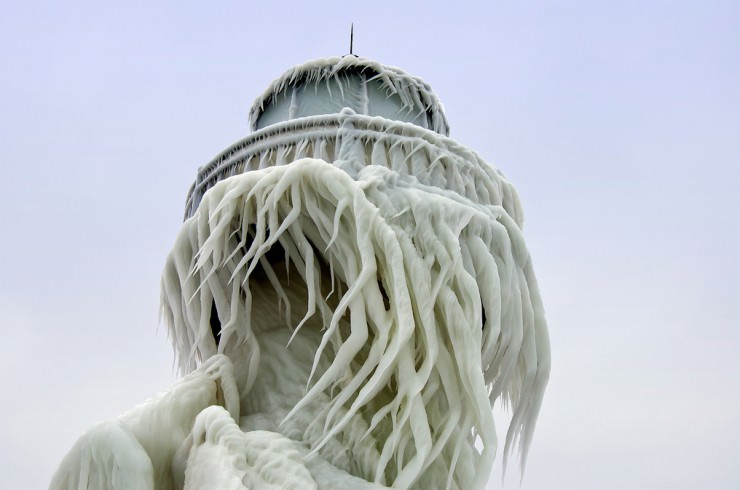
Photo by Unknown
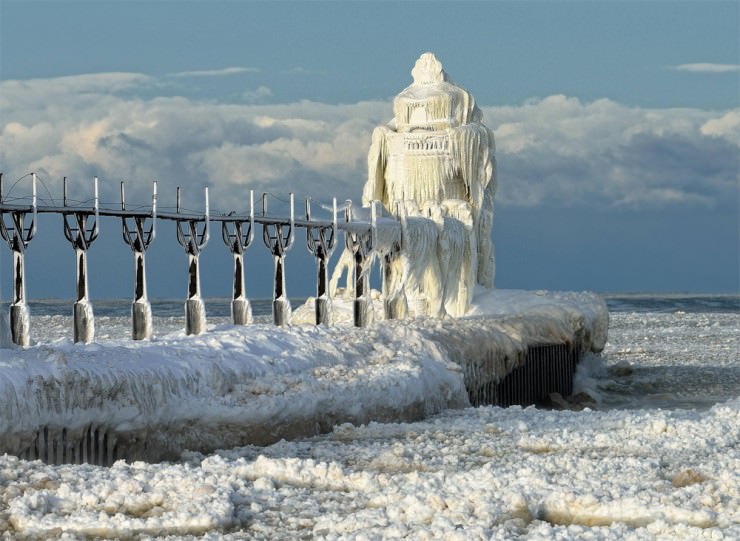
Photo by Unknown
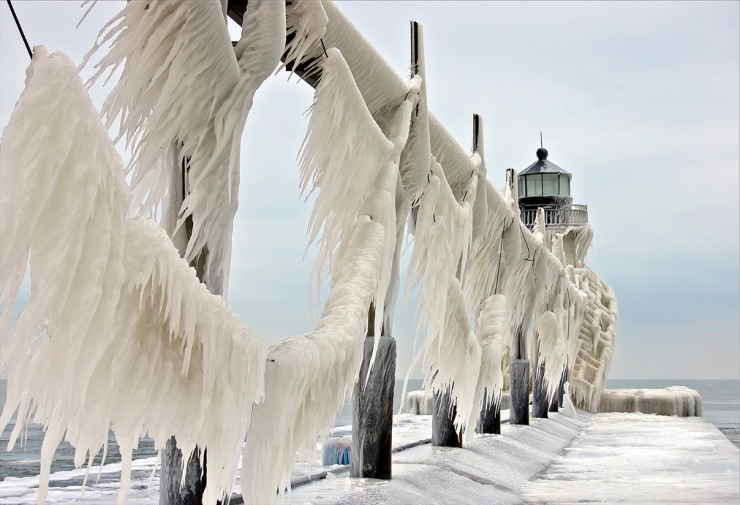
Photo by Unknown
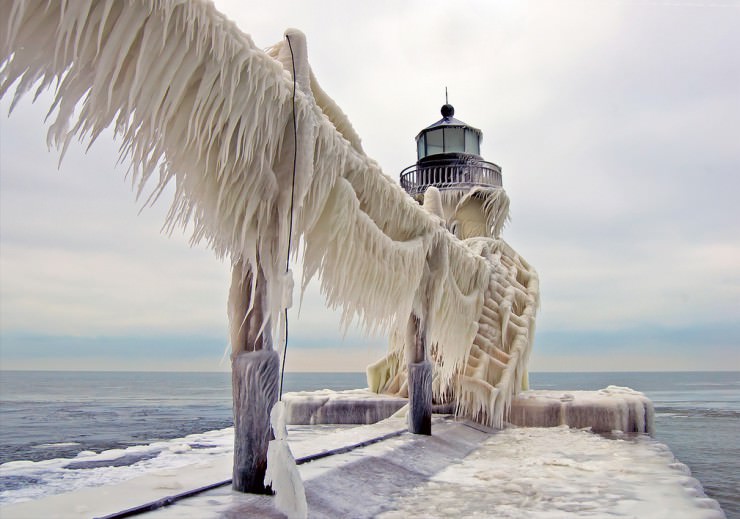
Photo by Unknown
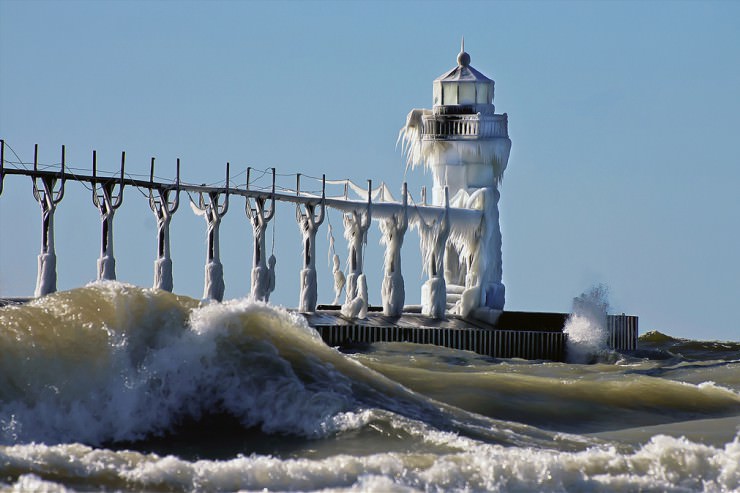
Photo by Unknown
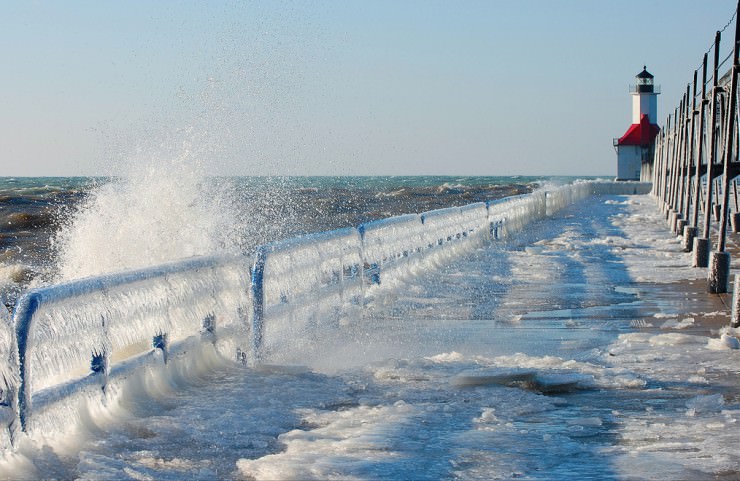
Photo by Unknown
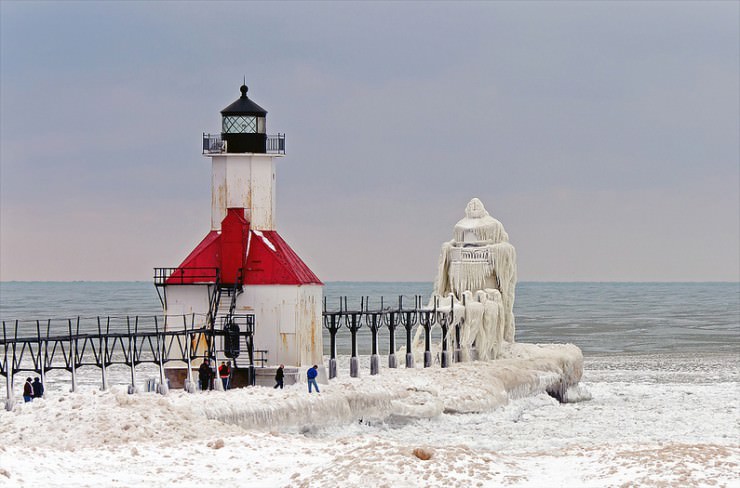
Photo by Unknown
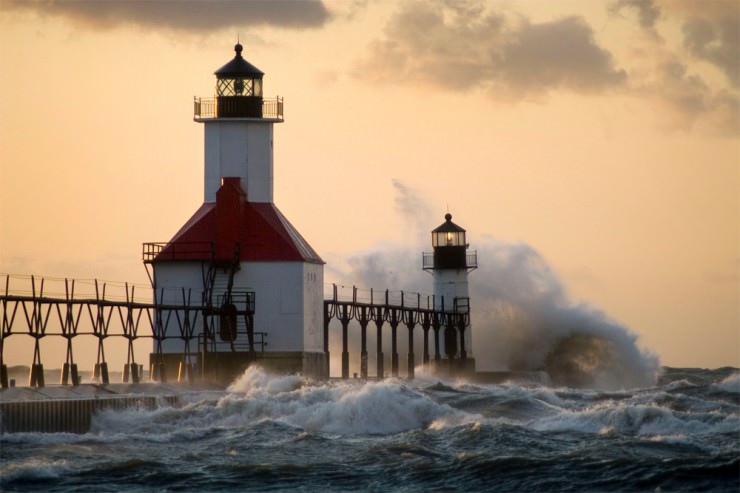
Photo by Unknown
[symple_googlemap title=”North Pier Street, St. Joseph, Mičiganas, Jungtinės Valstijos” location=”North Pier Street, St. Joseph, Mičiganas, Jungtinės Valstijos” zoom=”10″ height=250]
